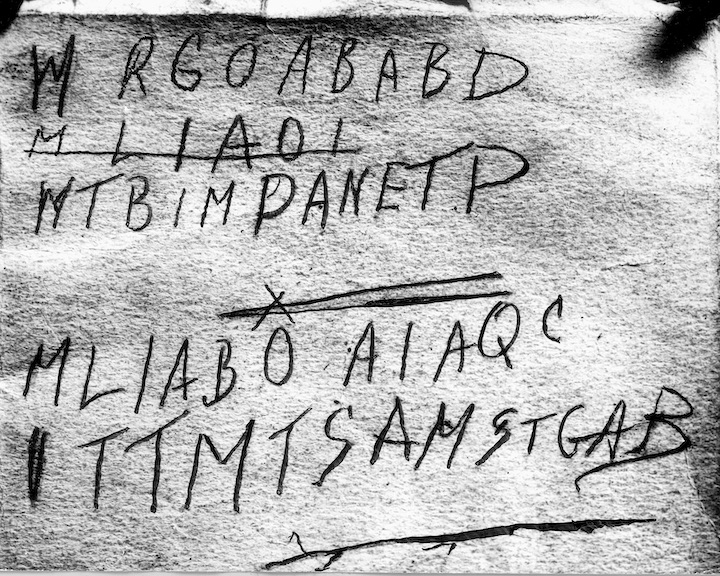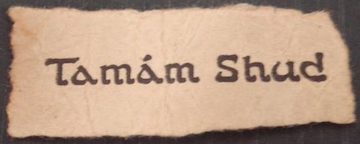Rosebud



On 1 December, 1948, the body of a man was found lying against the seawall at Somerton Beach in Adelaide. He was well-dressed, wearing a suit and tie. There was no identification on him, and even the labels in his clothing had been cut out. His belongings included incoherent writings, thought to be in code, and a scrap of paper torn from Rubáiyát of Omár Khayyám, with the Farsi phrase Tamám Shud—finished
—printed on it.
Over the years, there's been a good deal of speculation about Somerton Man
, and his death. One of the more fanciful theories being that he was a Russian spy, and that he'd been poisoned.
I came across his story a year or so ago. The fact that experts at the FBI and Scotland Yard had tried, and failed, to decipher the writings was intriguing. Would anyone ever unlock the secret?
So, I was curious, excited even, when the BBC's Tiffanie Turnball teased that the seven decade-old mystery has been solved
. No doubt, some intellectual colossus, a talented and tirelessly dedicated student of Sherlock Holmes' deductive method, had cracked the code, laying bare the enigma that is Somerton Man: who he was; why so much effort had gone into hiding his identity; what he was doing; and how and why he died. And the true significance of Tamám Shud.
Umm, nope! Mundanely enough, he's been identified through DNA analysis and forensic genealogy as Carl Webb, an electrical engineer from Melbourne. But as to what he was doing in Adelaide, other than speculation that he was searching for his estranged wife; the reason why he was killed, and by whom; and the meaning of those writings: well, that mystery—the real mystery—remains unsolved.
I can't help but feel cheated, really. Boo to you, Auntie Beeb!
To me, Tamám Shud is not unlike Charles Foster Kane's dying words. Except that, in Citizen Kane, we, the audience, are in on their significance. In this case, we're not.